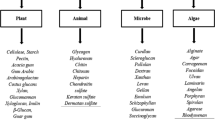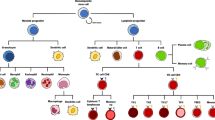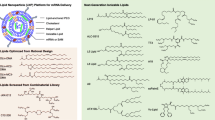Abstract
Protein-bound polysaccharide-K (Krestin; PSK) is a hot-water extract of Trametes versicolor with immune stimulatory activity. It has been used for the past 30 years and has demonstrated anti-tumor efficacy in multiple types of cancer. The ability of PSK to activate dendritic cells and T cells is dependent on its ability to stimulate Toll-like receptor 2 (TLR2), yet it remains unknown which structural component within PSK activates TLR2. The purpose of this study was to identify the TLR2 agonist within PSK and understand its role in the overall mechanism of PSK’s immunogenic activity. TLR2 activity was eliminated by treatment with lipoprotein lipase but not by trypsin or lyticase. Rapid centrifugation of PSK can separate the fraction with TLR2 agonist activity from the soluble β-glucan fraction. To study the potential interaction between the β-glucan component and the lipid component, we labeled the soluble β-glucan with fluorescein. Uptake of the labeled β-glucan by J774A macrophages and JAWSII dendritic cells was inhibited by anti-Dectin-1 antibody but not by anti-TLR2 antibody, confirming that Dectin-1 is the receptor for β-glucan. Interestingly, pre-treatment of JAWSII cells with the TLR2-active lipid fraction significantly enhanced the uptake of the soluble β-glucan, indicating the synergy between the TLR2 agonist component and the β-glucan component. Altogether, these results present evidence that PSK has two active components—the well-characterized protein-bound β-glucan and a previously unreported lipid—which work synergistically via the Dectin-1 and TLR2 receptors.






Similar content being viewed by others
References
Tsukagoshi S, Hashimoto Y, Fujii G, Kobayashi H, Nomoto K, Orita K (1984) Krestin (PSK). Cancer Treat Rev 11:131–155
Maehara Y, Tsujitani S, Saeki H, Oki E, Yoshinaga K, Emi Y, Morita M, Kohnoe S, Kakeji Y, Yano T, Baba H (2012) Biological mechanism and clinical effect of protein-bound polysaccharide K (KRESTIN®): review of development and future perspectives. Surg Today 42:8–28
Lu H, Yang Y, Gad E, Wenner CA, Chang A, Larson ER, Dang Y, Martzen M, Standish LJ, Disis ML (2011) Polysaccharide Krestin is a novel TLR2 agonist that mediates inhibition of tumor growth via stimulation of CD8 T cells and NK cells. Clin Cancer Res 17:67–76
Engel A L, Sun G-C, Gad E, Rastetter L R, Strobe K, Yang Y, Dang Y, Disis M L, Lu H (2013) Protein-bound polysaccharide activates dendritic cells and enhances OVA-specific T cell response as vaccine adjuvant. Immunobiology 218(12):1468-76
Hotta T, Enomoto S, Yoshikumi C, Ohara M, Ueno S (1981) Protein-bound polysaccharides. Kureha Chemical Industry Co. Ltd, Japan
Ohtsuka S, Ueno A, Yoshikumi C, Hirose F, Omura Y, Wada T, Fujii T, Takahashi E (1971) Polysaccharides with anticancer activity. Kureha Chemical Industry Co. Ltd, European patent office
Muller A, Pretus HA, McNamee RB, Jones EL, Browder IW, Williams DL (1995) Comparison of the carbohydrate biological response modifiers Krestin, schizophyllan and glucan phosphate by aqueous size exclusion chromatography with in-line argon-ion multi-angle laser light scattering photometry and differential viscometry detectors. J Chromatogr B Biomed Appl 666:283–290
Ren L, Perera C, Hemar Y (2012) Antitumor activity of mushroom polysaccharides: a review. Food Funct 3:1118–1130
Takeda K, Kaisho T, Akira S (2003) Toll-like receptors. Ann Rev Immunol 21:335–376
Engel AL, Holt GE, Lu H (2011) The pharmacokinetics of Toll-like receptor agonists and the impact on the immune system. Expert Rev Clin Pharmacol 4:275–289
Pasare C, Medzhitov R (2004) Toll-like receptors and acquired immunity. Semin Immunol 16:23–26
Sheu F, Chien PJ, Hsieh KY, Chin KL, Huang WT, Tsao CY, Chen YF, Cheng HC, Chang HH (2009) Purification, cloning, and functional characterization of a novel immunomodulatory protein from Antrodia camphorata (bitter mushroom) that exhibits TLR2-dependent NF-kappaB activation and M1 polarization within murine macrophages. J Agric Food Chem 57:4130–4141
Yamanaka D, Motoi M, Ishibashi K, Miura NN, Adachi Y, Ohno N (2012) Effect of Agaricus brasiliensis-derived cold water extract on Toll-like receptor 2-dependent cytokine production in vitro. Immunopharmacol Immunotoxicol 34:561–570
Brown GD, Herre J, Williams DL, Willment JA, Marshall ASJ, Gordon S (2003) Dectin-1 mediates the biological effects of β-glucans. J Exp Med 197:1119–1124
Fang J, Wang Y, Lv X, Shen X, Ni X, Ding K (2012) Structure of a beta-glucan from Grifola frondosa and its antitumor effect by activating dectin-1/Syk/NF-kappaB signaling. Glycoconj J 29:365–377
Qi C, Cai Y, Gunn L, Ding C, Li B, Kloecker G, Qian K, Vasilakos J, Saijo S, Iwakura Y, Yannelli JR, Yan J (2011) Differential pathways regulating innate and adaptive antitumor immune responses by particulate and soluble yeast-derived beta-glucans. Blood 117:6825–6836
Sullivan R, Smith JE, Rowan NJ (2006) Medicinal mushrooms and cancer therapy: translating a traditional practice into Western medicine. Perspect Biol Med 49:159–170
Normile D (2003) Asian medicine. The new face of traditional Chinese medicine. Science 299:188–190
Wasser SP (2011) Current findings, future trends, and unsolved problems in studies of medicinal mushrooms. Appl Microbiol Biotechnol 89:1323–1332
Manders EMM, Verbeek FJ, Aten JA (1993) Measurement of co-localization of objects in dual-colour confocal images. J Microsc 169:375–382
Brown GD, Taylor PR, Reid DM, Willment JA, Williams DL, Martinez-Pomares L, Wong SY, Gordon S (2002) Dectin-1 is a major beta-glucan receptor on macrophages. J Exp Med 196:407–412
Schreiber RD, Old LJ, Smyth MJ (2011) Cancer immunoediting: integrating immunity’s roles in cancer suppression and promotion. Science 331:1565–1570
Galon J, Costes A, Sanchez-Cabo F, Kirilovsky A, Mlecnik B, Lagorce-Pages C, Tosolini M, Camus M, Berger A, Wind P, Zinzindohoue F, Bruneval P, Cugnenc PH, Trajanoski Z, Fridman WH, Pages F (2006) Type, density, and location of immune cells within human colorectal tumors predict clinical outcome. Science 313:1960–1964
Wolchok JD, Kluger H, Callahan MK, Postow MA, Rizvi NA, Lesokhin AM, Segal NH, Ariyan CE, Gordon RA, Reed K, Burke MM, Caldwell A, Kronenberg SA, Agunwamba BU, Zhang X, Lowy I, Inzunza HD, Feely W, Horak CE, Hong Q, Korman AJ, Wigginton JM, Gupta A, Sznol M (2013) Nivolumab plus ipilimumab in advanced melanoma. N Engl J Med 369:122–133
Hamid O, Robert C, Daud A, Hodi FS, Hwu WJ, Kefford R, Wolchok JD, Hersey P, Joseph RW, Weber JS, Dronca R, Gangadhar TC, Patnaik A, Zarour H, Joshua AM, Gergich K, Elassaiss-Schaap J, Algazi A, Mateus C, Boasberg P, Tumeh PC, Chmielowski B, Ebbinghaus SW, Li XN, Kang SP, Ribas A (2013) Safety and tumor responses with lambrolizumab (anti-PD-1) in melanoma. N Engl J Med 369:134–144
Lu H, Yang Y, Gad E, Wenner CA, Chang A, Larson ER, Dang Y, Martzen M, Standish LJ, Disis ML (2011) Polysaccharide Krestin is a novel TLR2 agonist that mediates inhibition of tumor growth via stimulation of CD8 T cells and NK cells. Clin Cancer Res 17:67–76
Falch BH, Espevik T, Ryan L, Stokke BT (2000) The cytokine stimulating activity of (1 → 3)-β-D-glucans is dependent on the triple helix conformation. Carbohydr Res 329:587–596
Bohn JA, BeMiller JN (1995) (1 → 3)-β-d-Glucans as biological response modifiers: a review of structure-functional activity relationships. Carbohydr Polym 28:3–14
Zhang L, Li X, Xu X, Zeng F (2005) Correlation between antitumor activity, molecular weight, and conformation of lentinan. Carbohydr Res 340:1515–1521
Günç Ergönül P, Akata I, Kalyoncu F, Ergönül B (2013) Fatty acid compositions of six wild edible mushroom species. ScientificWorldJournal 2013:163964
Brown GD, Gordon S (2001) Immune recognition. A new receptor for beta-glucans. Nature 413:36–37
Mansour MK, Tam JM, Khan NS, Seward M, Davids PJ, Puranam S, Sokolovska A, Sykes DB, Dagher Z, Becker C, Tanne A, Reedy JL, Stuart LM, Vyas JM (2013) Dectin-1 activation controls maturation of beta-1,3-glucan-containing phagosomes. J Biol Chem 288:16043–16054
Qi C, Cai Y, Gunn L, Ding C, Li B, Kloecker G, Qian K, Vasilakos J, Saijo S, Iwakura Y, Yannelli J R, Yan J (2011) Differential pathways regulating innate and adaptive antitumor immune responses by particulate and soluble yeast-derived β-glucans. Blood 117(25):6825-36
Brown GD, Gordon S (2003) Fungal β-glucans and mammalian immunity. Immunity 19:311–315
Timmermans K, Plantinga TS, Kox M, Vaneker M, Scheffer GJ, Adema GJ, Joosten LAB, Netea MG (2013) Blueprints of signaling interactions between pattern recognition receptors: implications for the design of vaccine adjuvants. Clin Vaccine Immunol 20:427–432
Gantner BN, Simmons RM, Canavera SJ, Akira S, Underhill DM (2003) Collaborative induction of inflammatory responses by dectin-1 and Toll-like receptor 2. J Exp Med 197:1107–1117
Pang Z-J, Zhou M, Chen Y, Wan J (1998) A protein-bound polysaccharide synergistic with lipopolysaccharide induces nitric oxide release and antioxidant enzyme activities in mouse peritoneal macrophages. Am J Chin Med 26:133–141
Toge T, Yamaguchi Y (2000) Protein-bound polysaccharide increases survival in resected gastric cancer cases stratified with a preoperative granulocyte and lymphocyte count. Oncol Rep 7:1157–1161
Kidd PM (2000) The use of mushroom glucans and proteoglycans in cancer treatment. Altern Med Rev 5:4–27
Kono K, Kawaguchi Y, Mizukami Y, Mimura K, Sugai H, Akaike H, Fujii H (2008) Protein-bound polysaccharide K partially prevents apoptosis of circulating T cells induced by anti-cancer drug S-1 in patients with gastric cancer. Oncology 74:143–149
Koda K, Miyazaki M, Sarashina H, Suwa T, Saito N, Suzuki M, Ogawa K, Watanabe S, Kodaira S, Nakazato H (2003) A randomized controlled trial of postoperative adjuvant immunochemotherapy for colorectal cancer with oral medicines. Int J Oncol 23:165–172
Shibata M, Nezu T, Kanou H, Nagata Y, Kimura T, Takekawa M, Ando K, Fukuzawa M (2002) Immunomodulatory effects of low dose cis-diaminedichloroplatinum (cisplatin) combined with UFT and PSK in patients with advanced colorectal cancer. Cancer Invest 20:166–173
Morimoto T, Ogawa M, Orita K, Sugimachi K, Toge T, Dohi K, Nomura Y, Monden Y, Ogawa N (1996) Postoperative adjuvant randomised trial comparing chemoendocrine therapy, chemotherapy and immunotherapy for patients with stage II breast cancer: 5-year results from the Nishinihon cooperative study group of adjuvant chemoendocrine therapy for breast cancer (ACETBC) of Japan. Eur J Cancer 32A:235–242
Nakazato H, Koike A, Saji S, Ogawa N, Sakamoto J (1994) Efficacy of immunochemotherapy as adjuvant treatment after curative resection of gastric cancer. Study group of immunochemotherapy with PSK for gastric cancer. Lancet 343:1122–1126
Toi M, Hattori T, Akagi M, Inokuchi K, Orita K, Sugimachi K, Dohi K, Nomura Y, Monden Y, Hamada Y et al (1992) Randomized adjuvant trial to evaluate the addition of tamoxifen and PSK to chemotherapy in patients with primary breast cancer. 5-Year results from the Nishi–Nippon group of the adjuvant chemoendocrine therapy for breast cancer organization. Cancer 70:2475–2483
Pugh ND, Tamta H, Balachandran P, Wu X, Howell JL, Dayan FE, Pasco DS (2008) The majority of in vitro macrophage activation exhibited by extracts of some immune enhancing botanicals is due to bacterial lipoproteins and lipopolysaccharides. Int Immunopharmacol 8:1023–1032
Tamta H, Pugh ND, Balachandran P, Moraes R, Sumiyanto J, Pasco DS (2008) Variability in in vitro macrophage activation by commercially diverse bulk echinacea plant material is predominantly due to bacterial lipoproteins and lipopolysaccharides. J Agric Food Chem 56:10552–10556
Yadav M, Schorey JS (2006) The beta-glucan receptor dectin-1 functions together with TLR2 to mediate macrophage activation by mycobacteria. Blood 108:3168–3175
Fisher M, Yang LX (2002) Anticancer effects and mechanisms of polysaccharide-K (PSK): implications of cancer immunotherapy. Anticancer Res 22:1737–1754
Acknowledgments
This work was supported by NIH NCCAM grant 3U19AT006028-02S1 and a faculty seed grant from Bastyr University Research Institute.
Author information
Authors and Affiliations
Corresponding author
Rights and permissions
About this article
Cite this article
Quayle, K., Coy, C., Standish, L. et al. The TLR2 agonist in polysaccharide-K is a structurally distinct lipid which acts synergistically with the protein-bound β-glucan. J Nat Med 69, 198–208 (2015). https://doi.org/10.1007/s11418-014-0879-z
Received:
Accepted:
Published:
Issue Date:
DOI: https://doi.org/10.1007/s11418-014-0879-z




